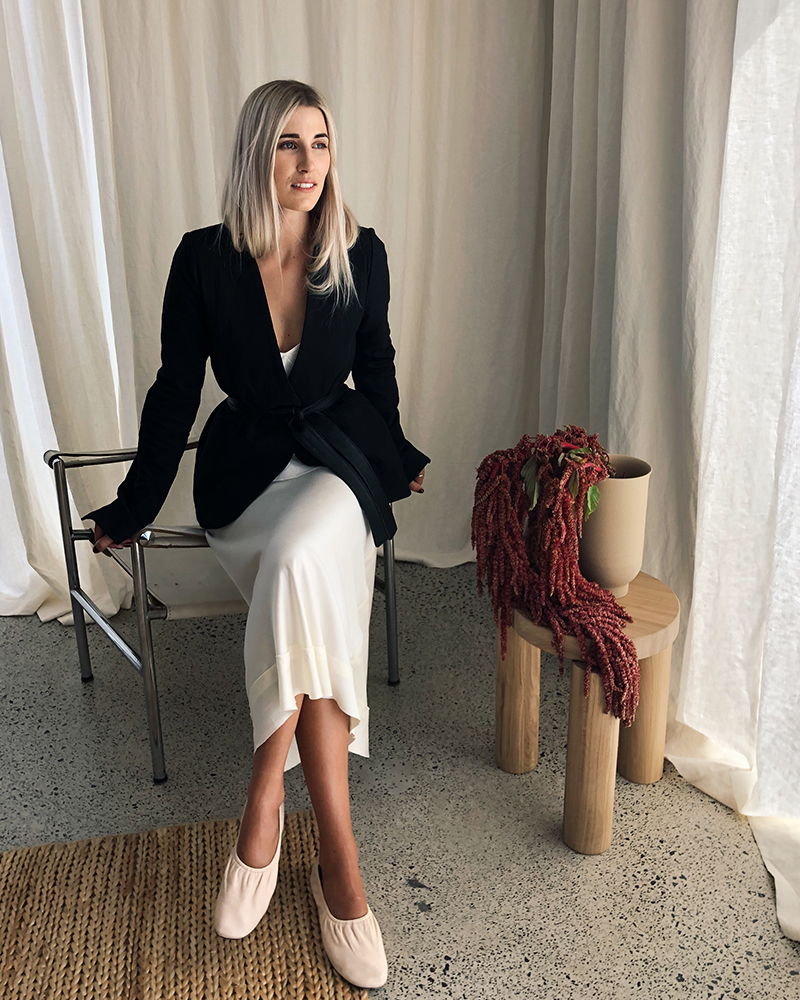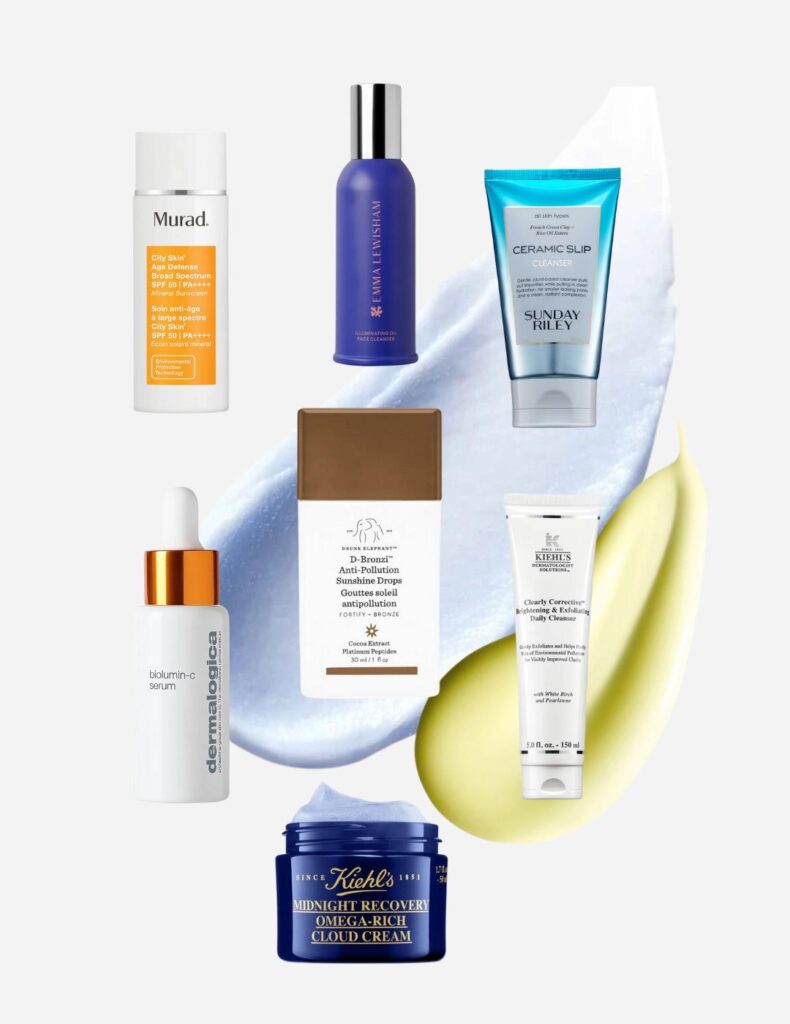
Juliet Souter shares her sustainability policy and pro-tips as the founder and creative director of Marle.
As a mother and designer, Juliet Souter sees the importance of using exclusively natural fibres and fabrics for her luxurious garments – not only do they feel better for those who wear them, but they help protect the planet for future generations too.
Basing herself in the beach town of Mount Maunganui, Juliet’s linen, silk, cotton and cashmere designs echo their elemental surroundings in earthy colours and textures too.
Here she shares her thoughts on sustainable fashion, and a sustainable future, during global initiative Fashion Revolution Week:
What does ‘sustainable fashion’ mean to you?
Sustainable fashion to me means being mindful of our environment by creating pieces with longevity using natural fabrics and yarns. This approach then facilitates how we approach our design process and means we are putting the wearer and environment first when creating our collections.
Sustainability is now a core aspect of our brand and design vision. We are on a constant journey to develop and create more considered garments and there is a myriad of production elements that we have to take into consideration while doing this. From sourcing new certified fabrics and yarn or changing to compostable packaging and removing plastic from our branding collateral.
When did you first come aware of the need for sustainable fashion?
From day one my vision was to create considered, luxurious pieces that offer low impact, wardrobe staples for women of all ages. Like all industries, I understand that we have a responsibility to continually drive improvements in conscious and responsible business practices.
Personally, I have always purchased pieces that not only stand the test of time in terms of design, but the fabric quality endures multiple seasons. At Marle, we use natural fabrics like hemp and linen that not only are sustainable in nature, they endure wear and tear which helps with buying less often.
In your opinion, why is Fashion Revolution Week so important?
It’s important and helpful with educating our customers on how fashion and fabric can affect our environment meaning they can make more informed purchasing decisions.
Fashion Revolution Week is key to this process, ensuring brands deliver and consider conscious design practises all the way from the supply chain directly to the customer.
Can you tell us how your business approaches sustainability and ethical practices?
Environmental improvements in our supply chain are driving our ethical and responsible business practices. We are continually looking for new ways to produce with purpose and care.
This season we have extended our sustainable focus from using exclusively natural fabrics and fibres to also working with a fabric mill that uses all non-toxic treatments and plant-based dyes in their fabric production. Our knitwear factory is Gold Wrap certified and uses solar power and our yarn and silk are Oeko-Tex Certified.
For a few of our knitwear styles, we are working with a yarn mill in New Zealand who uses New Zealand merino, Mulberry silk and sustainably sourced possum. It’s a luxurious yet conscious yarn that we are excited to share with our customers again this season.
We have also changed our packaging from recyclable to compostable, removed plastic from our swing tags and all of our care labels moving forward are made from 100 per cent cotton. We still have a way to go but we are committed to constantly finding new ways to lessen our footprint.
Why has it been so important to you to put these processes in place?
As a brand, we are committed to our people and the planet. We are responsible for implementing social and environmental practices that deliver conscious design to our customer.
Working in the fashion industry, I have a heightened commitment to the cause knowing the impact that it can have. I want to educate consumers on the importance of adding natural garments into their wardrobe. Not only can you be rest assured that you’re reducing your impact on the environment, they feel luxurious against the skin and have anti-microbial benefits.
Does having these processes in place to make it more challenging to design?
Using only natural fibres and fabrics has its challenges. It can be hard to source natural fabrics and yarn these days, particularly beautiful heavy weight silks and silk blends but overall it hasn’t been an issue.
Another challenge is educating our customers on natural fabric care. We speak with our amazing retailers about the natural fabrics we have used and how they should be cared for.
They do an incredible job recommending best care practices for silk and knitwear, our fabrics that need a more gentle touch. The linen and hemp pieces are more resilient to everyday wear and tear.
What is the one thing consumers could do today to take action and drastically change their consumption of fashion?
Be conscious of your environmental footprint. Not only in fashion but in all areas of consumption. Buy timeless, natural pieces that last beyond seasonal trends. This will instantly reduce the impact production can have.
To find out more about Fashion Revolution Week, click here.










